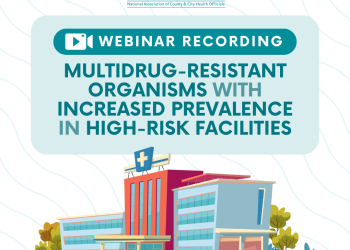Bobbi Patrizio
Allegheny County Health Department, Pennsylvania
January 16, 2014
In 2010 Pittsburgh, Pennsylvania, the City of Champions captured the title “most livable city in America” for the second year in a row but it is not so livable for some of the youngest citizens. The African American infant mortality rate continues to exceed the Caucasian rate by 3.7 times like many cities across the country.
Sixty percent of the infants in the city that die before their first birthday are born premature and low birth weight. One of these babies was Shawna, a 20 year old African American mother’s first baby born at 28 weeks who died after two days in the NICU. What Shawna didn’t know and what we are just beginning to understand is that her Adverse Childhood Experiences (ACEs) could have affected the outcome of her pregnancy. Shawna had a lot of toxic stress in her childhood. Her Mom was an alcoholic and sometimes her Dad fought with her Mom, even hitting her. He had been in jail since she was 14. This made her wonder if her boyfriend would be around when their next baby was born in a few months. He didn’t have a job and he often went to the crack house up the street. Her neighborhood made her afraid with gang fights and gunfire in her backyard. Her doctor had told her to stop smoking while she was pregnant but how was she supposed to handle all her stress. She wants to have a family but wonders what it will take to have a healthy baby.
The Allegheny County Health Department in Pittsburgh, PA is concerned about how to identify and help Shawna with her toxic stress so that she has a better chance of having a healthy baby at birth. A Strategic Planning Committee was created to engage and mobilize other community stakeholders around the disparity between races in infant mortality in January, 2013. The ACE and Lifecourse perspective were identified as ways to assess the impact of childhood toxic stress on pregnancy outcomes. Because these concepts are new in Maternal and Child Health (MCH) they are not well known by community stakeholders nor are there clear interventions designated to help ameliorate these stresses. After educating themselves more about ACE and Lifecourse, the committee created a distance learning webinar. Along with live facilitation and question and answer periods, an Early Head Start project was educated in how the ACE and Lifecourse affected mothers and in turn their children. In understanding these concepts they were able to identify transgenerational affects on the children and determine ways to better understand and to ameliorate these affects on the children in the school system.
In this pilot project the attendees acknowledged that they understood the concepts of ACE and Lifecourse. They were able to discuss affects on children whose mothers were affected by ACE. The educational structure included the basics of Trauma Informed Care and helped them understand the need to ask “What happened to you? Not “what’s wrong with you?” The objectives were met indicating this would be an effective way of educating various groups in our community. Having met this short term goal, the intermediate goal is to continue educating providers, home visitors and our community about ACE and its generational affects. A grant has been secured to continue assessment, education through the webcast or face to face education, and investigating interventions to toxic stress experienced in childhood. A media campaign will help encourage those with stresses to ask for help. Another intermediate goal is to increase services for families that educate and mentor through home visiting services. The long term goals are to have ACE assessments be the norm with effective interventions leading to healthier babies with a future in our city of champions.
This project brought the city together to address a concerning MCH issue of infant mortality disparity, We found that the ACE study solidified MCH stakeholders around this persistent issue. It seemed that there was an understanding that prenatal care alone wouldn’t insure better birth outcomes. A chance to see the issue through a new lens has given the community stakeholders a new enthusiasm to educate others about the ACE study. Having the opportunity to create a webcast through our Pennsylvania Health Training Center gave flexibility in educating other community stakeholders. There were some technical issues that need to be addressed but a large grant has been secured because of our work that will help us refine this learning technique. We hope to add other video sessions to the training as the planning group identifies new links to toxic stress and the interventions available.




